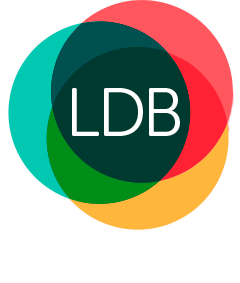From employee to sole trader: Non-commercial loss rules
December 3, 2019

People shifting from a Pay As You Go (PAYG) employee to a sole trader are often confused about how to treat deductions incurred under a personal ABN.
Many people mistakenly believe that if they incur a deduction under their ABN, such as purchasing a car and applying the instant asset write-off rules, then they are automatically entitled to a tax refund or offset. However, this isn’t always the case.
If you are shifting to a sole trader, it is critical to understand the rules around treating deductions under a personal ABN, as well as the cash flow impact arising from different tax timing.
How non-commercial loss rules work
In ordinary circumstances, if you incur a deduction, this reduces your taxable income and reduces the amount of tax you have to pay.
However, if you only incur deductions and generate a loss under a sole trader ABN, this loss gets segregated from your other income (e.g. interest, dividends, salary, other business activities) and can only be used to reduce your other income if certain conditions are met under the non-commercial loss rules or tests.
To be eligible for the tests, you are required to have less than $250,000 of taxable income. There are four tests to determine if you are eligible to use the deductions against your other taxable income, and you only need to pass one to be eligible.
Should you fail these tests, the value of the deduction is not lost, it is simply carried forward until you pass the tests in future, or you generate some income under your business activity attached to your personal ABN that this deduction can be used against.
Assessable income test
The first test is that your business needs to produce assessable income of at least $20,000 in the financial year. This includes ordinary income, which includes your business activities, and statutory income, which includes capital gains.
If you only trade for part of the year because you either commence or cease trading, you are able to extrapolate the income you earned for that period out to what it would have been if you traded for the whole year.
Should you pass this test and still incur a loss under your ABN, you will be eligible to use this loss against your other taxable income.
Profit test
To pass the profit test, you will be required to be in a taxable profit for three out of the past five years of operation.
This means that if your business has produced a tax profit for the last three years, the test will be passed even if you incur a loss for the next two years.
Additionally, you would be able to use the losses you incur in the fourth and fifth year against your other taxable income.
Real property test
This test requires you to use real property in your business on a continued basis that is worth at least $500,000.
Real property includes things such as land buildings and structures or interests in such a property (e.g. a lease over the property).
This will not include any property that is used on a short-term basis or for a once-only task.
Other assets test
You will pass this test if you continuously use other assets in your business that are valued at more than $100,000.
These other assets include plant and equipment items (owned or leased), stock or intangible assets such as trademarks, patents and copyrights.
It’s worth noting that this does not include motor vehicles.
Get expert business tax advice
With constantly changing tax rules and regulations, sole traders should consider getting tax advice tailored to their individual business needs.
At LDB, we help sole traders keep on top of their tax affairs and make informed choices.
The team at LDB Group can help you take advantage of lesser known tax deductions, as well as new rules and deductions.
To find out more, give us a call on (03) 9875 2900 or fill out the contact form below.
Disclaimer: Please note that the above information is general advice only and conditions may vary depending on an individual’s circumstances. We advise you seek professional advice to obtain an accurate assessment.
